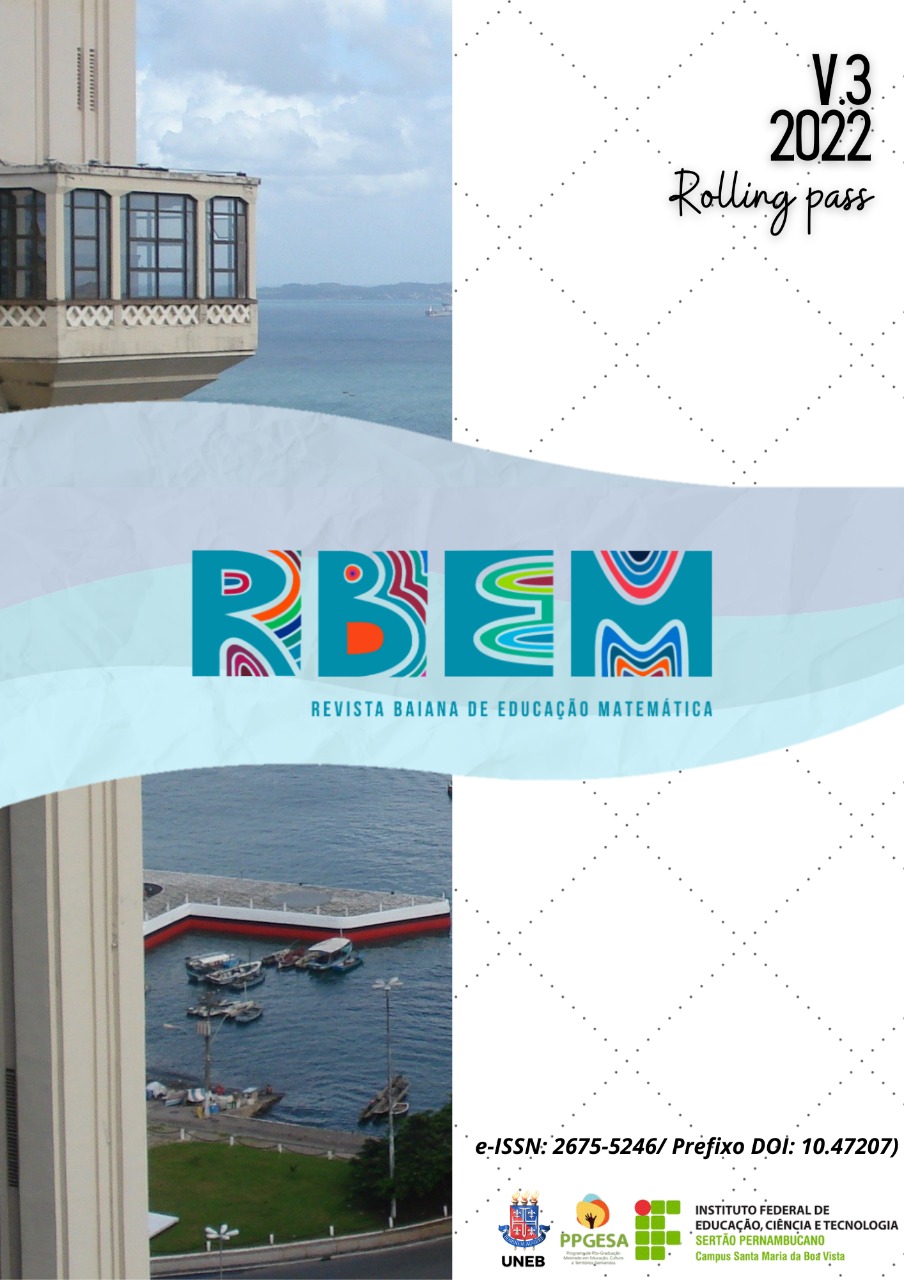Linear regression in the Enade of Economics: an analysis based on Statistical Literacy
Main Article Content
Abstract
In this article, the knowledge of Brazilian students on Regression Analysis was analysed, based on the different types of Statistical Literacy skills proposed in Gal's model (2002). For this, the question that presented the worst performance in the main instrument for evaluating Brazilian higher learning was used: the National Student Performance Examination (ENADE). The Exam assesses students according to the content, skills and abilities provided for in the curriculum guidelines of the courses.It was found that the chosen question represented a professional scenario, in which skills with formulas and statistical algorithms were not the main required knowledge. The student had to issue an opinion on the results of Hypothesis Tests related to certain theoretical assumptions about the errors of the built regression models, in the context of the financial market. This scenario may reflect the teaching process that have been carried out in Brazilian economics courses, which seem to be more oriented towards mathematical technique and not towards a broad perspective of Statistical Literacy. Therefore, from a pedagogical point of view, there is a need to implement changes in Linear Regression teaching practices, which provide better student performance, in addition to better preparing the economist professional, in view of the new literacy demands required for citizenship.
Downloads
Article Details
Uma nova publicação de artigo anteriormente publicado na Revista Baiana de Educação Matemática, fica sujeita à expressa menção da precedência de sua publicação neste periódico, seguindo as normas de referência. Autores que publicam na RBEM concordam com os seguintes termos:
-
O Conselho Editorial se reserva ao direito de efetuar, nos originais, alterações de ordem normativa, sintática, ortográfica e bibliográfica com vistas a manter o padrão culto da língua, respeitando, porém, o estilo dos autores. As provas finais poderão ou não ser enviadas aos autores.
-
Autores mantém os direitos autorais e concedem à revista o direito de primeira publicação, com o trabalho simultaneamente licenciado sob a Licença Creative Commons Attribution (CC BY-NC-SA).
-
Autores têm autorização para assumir contratos adicionais separadamente, para distribuição não-exclusiva da versão do trabalho publicada nesta revista, exemplo: publicar em repositório institucional ou como capítulo de livro, com reconhecimento de autoria e publicação inicial na RBEM.
-
Autores têm permissão e são estimulados a publicar e distribuir seu trabalho online — em repositórios institucionais, página pessoal, rede social ou demais sites de divulgação científica.
References
AGYEMAN, F. O.; AGYEMANG, K. S.; ZHIQIANG, Ma.; LI, M.B.R; WIREDU, J. From Theory to Practice of Promoting Student Interest in Econometrics: application of structural equation model. International Journal of Development Research, v. 11, n.11, 2021. 52124-52134
ANGRIST, J. D.; PISCHKE, J-S. Undergraduate Econometrics Instruction: Through Our Classes Darkly. Journal of Economic Perspectives, 31, 2, 2017. 125-144.
ARKES, J. Teaching Graduate (and Undergraduate) Econometrics: Some Sensible Shifts to Improve Efficiency, Effectiveness, and Usefulness. Econometrics, 8, 3, 2020. 36-43.
BATANERO, C.; GEA, M. M.; LÓPEZ-MARTÍN, M. M.; ARTEAGA, P. Análisis de los conceptos asociados a la correlación y regresión en los textos de bachillerato. Didacticae: Revista de Investigación en Didácticas Específicas, Barcelona, v. 1, n. 1, 2017. 60-76.
BECKER, W. E.; GREENE, W. H. Teaching statistics and econometrics to undergraduates. The Journal of Economic Perspectives, 15, 4, 2001. 169-182.
BEKKERMAN, A. The role of simulations in econometrics pedagogy. Wiley Interdisciplinary Reviews: Computational Statistics, 7, 2, 2015. 160-165.
BRASIL. Diretrizes Curriculares Nacionais do Curso de Graduação em Economia. Brasília, MEC, 2007.
CHIQUETE, J. U. S. Da matemática aos modelos econométricos: Aplicação ao ensino superior Angolano. 2014. Dissertação (Mestrado em Finanças), Universidade Portucalense, Porto, 2014.
FISHER, R. A. Satistical Methods and Scientific Inference. Endinburgh: Olivier & Boyd, 2nd edition, 1959.
GAL, I. Adults’ statistical literacy: meanings, components, responsibilities. International Statistical Review, 70, 2002. 1-50.
GAL, I. Towards 'probability literacy' for all citizens. In: Graham A. Jones (Ed.).
Exploring probability in school: Challenges for teaching and learning, v. 1, 2005. 43-71
GAL, I.; GROTLÜSCHEN, A.; TOUT, D.; KAISER, G. Numeracy, adult education, and vulnerable adults: A critical view of a neglected field. ZDM Mathematics Education, 52, 3, 2020. 377-394.
GALICIA, R.; The challenges of teaching statistics to undergraduate business and economics students in Spain. Proceedings of 10th International Conference on Teaching Statistics – (ICOTS 10), Kyoto, Japão, 2018.
KASSENS, A. L. Theory vs. practice: Teaching undergraduate econometrics. The Journal of Economic Education, 50, 4, 2019. 367-370.
KENNEDY, P. E. Using Monte Carlo studies for teaching econometrics. Teaching Economics to Undergraduates: Alternatives to Chalk and Talk, 1, 1998. 141-159.
KENNEDY, P. E. Manual de Econometria. Rio de Janeiro: Elsevier, 2009.
MACHADO, J. A. F.; SILVA, J. 50 anos de ensino de econometria em Portugal. Economia, 26, 2002. 95-112.
SOWEY, E. R. University teaching of econometrics: A personal view. Econometric Reviews, 2, 2, 1983. 255-333.

